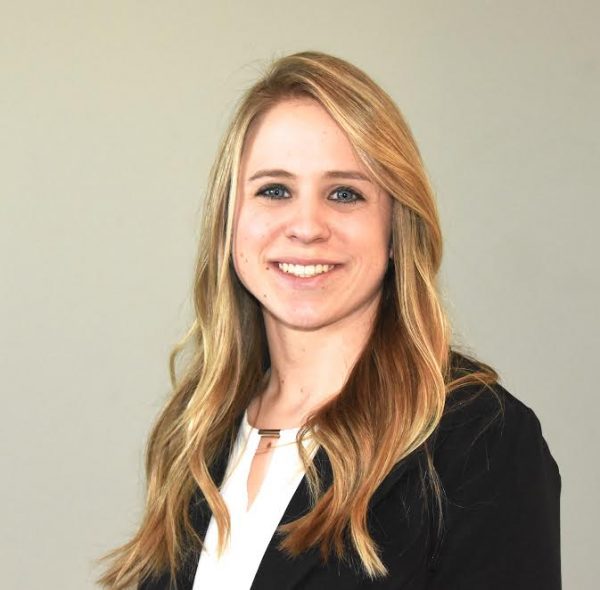
Michaela Hoffelmeyer (’17 global resource systems, agriculture and society) was unsure what she wanted to be “when she grew up.” Throughout her undergraduate years at Iowa State University, she had no clear idea what career to pursue following graduation, despite thoroughly enjoying her global resource systems major in the College of Agriculture and Life Sciences (CALS).
Then, during her junior year, Hoffelmeyer discovered agriculture and society, an interdisciplinary major formerly called public service and administration in agriculture, which is housed in the Department of Sociology and CALS.
“I had never heard of a rural sociologist, but after one short meeting with Dr. Carmen Bain, professor of sociology, I immediately added agriculture and society as my second major.”
Shining a new light on agriculture
The agriculture and society major introduced Hoffelmeyer to new ways of understanding how agriculture impacts society beyond food production.
“This degree allowed me to engage with questions about unequal power dynamics that disadvantage certain groups from accessing food and farming,” she said. “In my opinion, these social and environmental inequalities in the agrifood system are at the very foundation of making a difference in today’s world.”
Hoffelmeyer was especially influenced by Bain’s class, Agriculture in Transition, which included discussions on women farmers in the United States.
“It was this experience that illuminated the role of gender in farming, ultimately leading me to consider how other parts of our identity, such as sexuality and race, influence our ability to farm,” Hoffelmeyer said.
The class helped fine-tune Hoffelmeyer’s career focus. Following her 2017 graduation from Iowa State, she enrolled in graduate school at Pennsylvania State University, where she is currently pursuing a master’s degree in rural sociology.
Today, Hoffelmeyer is studying the unique challenges queer farmers face because, she says, the family farm is viewed as a “natural” way to farm, and privileges heterosexuality. As part of her research, she has interviewed 20 LGBTQ farmers in the Northeast, seeking to understand the barriers and opportunities queer farmers face as they try to maintain viable farms. Her research is supported by the Northeast Sustainable Agriculture Research and Education Program.
“I realized that there was a strong desire and need for this discussion in farming communities,” Hoffelmeyer said. “Ultimately, I felt that I could leverage my own identity as a queer person who had inhabited numerous agricultural spaces, to elevate the voices of queer farmers who have traditionally been overlooked as current and potential farmers.”
Sharing her knowledge
Last month, Hoffelmeyer traveled back to Iowa State and shared her research findings with current undergraduate and graduate students studying agriculture and society, sociology, and sustainable agriculture. She appreciated the opportunity to share her work at her alma mater, and hopes her findings will positively impact all who seek to operate viable farms in the U.S.
“Because Iowa State is a leading land grant institution, having this discussion here has incredible potential to increase support for queer farmers and other marginalized populations in agriculture as well,” Hoffelmeyer said.
Future plans
After Hoffelmeyer receives her master’s degree in December, she plans to continue working in academia as both a teacher and researcher, another career choice that was not initially on her radar.
“When I entered graduate school, I was unsure if I would apply for the Ph.D. program,” she said. “However, conducting this research and having the opportunity to share this work with farmers and students at places like Iowa State, has solidified for me the incredibly rewarding aspects of academia.”
